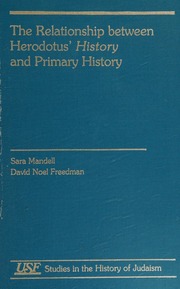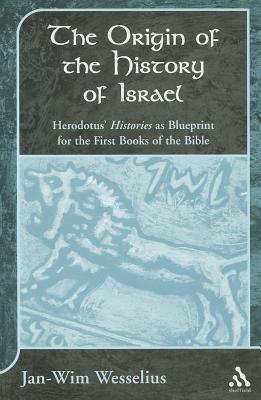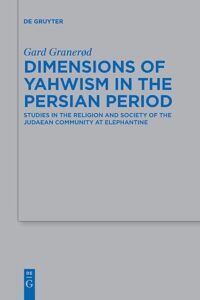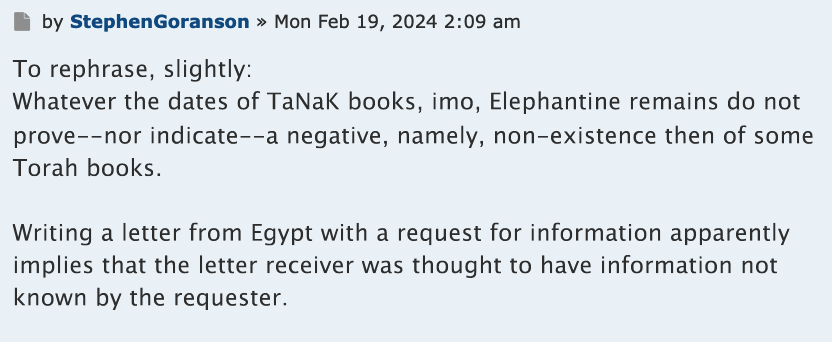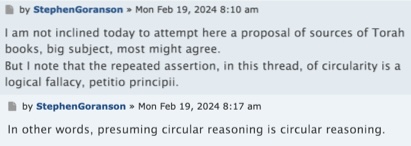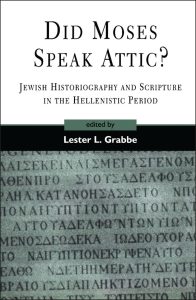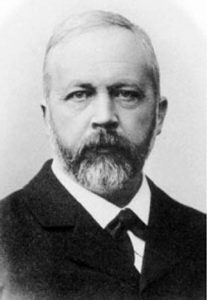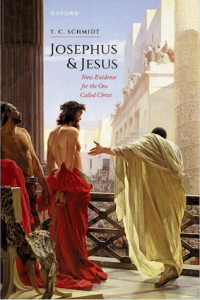I’ve addressed the Documentary Hypothesis several times before (see a list of post beginning here). The DH is the basis through which the Hebrew Bible is understood to have begun its development as early as the days of David and Solomon, and in the time of the Babylonian Captivity and through to the period of the Persian Empire. Russell Gmirkin took up the proposal of Thompson and Lemche that the Pentateuch and other biblical texts had their origin as late as subsequent to the conquests of Alexander the Great, less than 300 years before the common era.
Here are a few of my posts in the Academic Discussion section of the Earlywritings Forum that attempted to draw attention to the circularity at the heart of the DH.
Demonstrating the Circularity at the Heart of the Documentary Hypothesis
It had been suggested on the forum that by claiming circularity was at the heart of the DH there was some “caricature” of the DH involved, that the DH was not being presented in a fair way. So I went back to the source and in response to being asked “who” exactly dated the texts in such a way, wrote (I was writing to an audience whom I assumed would know that Julius Wellhausen was the principal pioneer of the DH (=Documentary Hypothesis):
By whom? Here is what Julius Wellhausen wrote in Prolegomena:I.II.2
The Jehovistic Book of the Covenant lies indeed at the foundation of Deuteronomy, but in one point they differ materially, and that precisely the one which concerns us here. As there, so here also, the legislation properly so called begins (Deut. xii.) with an ordinance relating to the service of the altar; but now we have Moses addressing the Israelites in the following terms: “When ye come into the land of Canaan, ye shall utterly destroy all the places of worship which ye find there, and ye shall not worship Jehovah your God after the manner in which the heathen serve theirs. Nay, but only unto the place which the Lord your God shall choose out of all your tribes for His habitation shall ye seek, and thither shall ye bring your offerings and gifts, and there shall ye eat before Him and rejoice. Here at this day we do every man whatsoever is right in his own eyes, but when ye have found fixed abodes, and rest from your enemies round about, then shall the place which Jehovah shall choose for His habitation in one of your tribes be the one place to which ye shall bring your offerings and gifts. Take heed that ye offer not in every place that ye see; ye may not eat your holy gifts in every town, but only in the place which Jehovah shall choose.”
The Law is never weary of again and again repeating its injunction of local unity of worship. In doing so, it is in conscious opposition to “the things that we do here this day,” and throughout has a polemical and reforming attitude towards existing usage. It is rightly therefore assigned by historical criticism to the period of the attacks made on the Bamoth by the reforming party at Jerusalem. As the Book of the Covenant, and the whole Jehovistic writing in general, reflects the first pre−prophetic period in the history of the cultus, so Deuteronomy is the legal expression of the second period of struggle and transition. The historical order is all the more certain because the literary dependence of Deuteronomy on the Jehovistic laws and narratives can be demonstrated independently, and is an admitted fact. From this the step is easy to the belief that the work whose discovery gave occasion to King Josiah to destroy the local sanctuaries was this very Book of Deuteronomy . . .
The whole reasoning process begins with the assumption of the historical veracity (at least in its core) of the biblical Josiah account. From that assumption it follows that the book of Deuteronomy was the source of those reforms (after all, Deuteronomy attacks false worship, just like Josiah did) and therefore Deuteronomy had to have been in existence before the time of Josiah.
That is an invalid argument. How do we know Deuteronomy existed before Josiah? Because the Josiah narrative tells us so? How do we know the Josiah narrative is based on true history? Because the book of Deuteronomy explains his motivation for the reforms. How do we know the book of Deuteronomy explains his reforms? . . . . gets dizzying….
by neilgodfrey » Mon Feb 19, 2024 10:58 am
—oo0oo—
The above failed to impress, so I added another:
 Here is another demonstration of the circularity in the dating of Deuteronomy to the time of (or before) Josiah. It is from William Dever in Beyond the Texts: An Archaeological Portrait of Ancient Israel and Judah (2017), pp 611-613.
Here is another demonstration of the circularity in the dating of Deuteronomy to the time of (or before) Josiah. It is from William Dever in Beyond the Texts: An Archaeological Portrait of Ancient Israel and Judah (2017), pp 611-613.
First, Dever reminds us of the importance of archaeology in assessing the historicity of the biblical accounts:
[A]rchaeological data are primary because an external witness is required to lend support to the historicity of the biblical narratives, if possible, and archaeology is, by definition, the only candidate (including, of course, the texts that it may recover). Archaeology is primary because it provides an independent witness in the court of adjudication, and when properly interrogated it is often an unimpeachable witness. (p. 18)
Agreed 100%.
But then compare that noble statement with how he actually uses archaeological data to “confirm” a biblical narrative:
It is the reign of Josiah (648–609) that is best correlated with the archaeological evidence that we now have. His reputation as a reformer, a restorer of tradition, comports especially well with the more favorable situation that we know obtained with the decline of Assyria
Correlation is not a proof. Dever lists in a table what is explicitly proven by archaeology at the time of Josiah:
“Poly-yahwism”; Asherah cult; Yahu names; Philistia attacked (p. 609)
In the same table he lists as “Probable; Evidence Ambiguous”
Josiahʼs attempted reforms; consulted temple scroll; maintained Judah even if vassal; Josiah slain in battle, 609
So archaeology, according to his own analysis, does not confirm the historicity of the Joshua narrative. Nonetheless, he proceeds to set forth a list of correlations with the biblical account — as if correlations can ever be anything more than correlations. (Compare the correlations with historical data of any historical novel.)
He begins on page 11:
It is the reign of Josiah (648–609) that is best correlated with the archaeological evidence that we now have. . . .
Numerous studies of these intriguing reform measures attributed to Josiah have been published, but few have paid any attention to possible archaeological correlates—that is, to a possible real-life context in the late seventh century. Most scholars have focused on whether the reform was successful, many assuming that the reforms claimed are simply too fantastic to be credible. The fact is, however, that we have good archaeological explanations for most of the targets of Josiahʼs reforms. For instance, we know what high places (bāmôt) are, and we have a number of examples of them, perhaps the most obvious example being the monumental one at Dan.
No-one denies the biblical authors were familiar with the various popular cults of the day. Simply finding evidence of these brings us no closer to finding any support for the historicity behind the narrative of Josiah and the discovery of Deuteronomy.
We have many altars in cult places and private homes, large and small. We even have an example of the altar on the roof in the debris of a building destroyed at Ashkelon in 604.
The sacred poles and pillars are easily explained, even in the Hebrew Bible, as wooden images or live trees used to represent the goddess Asherah symbolically. The tree iconography has now been connected conclusively with the old Canaanite female deity Asherah, whose cult was still widespread in Iron Age Israel, in both nonorthodox and conformist circles (above).
The weavings, or perhaps “garments” or even “curtains,” for Asherah (Hebrew bāttîm) remain a crux. Renderings by the Septuagint, the Targumim, and later Jewish commentaries suggest a corrupt Masoretic Text, but woven garments for deities and tent-like hangings for sacred pavilions are well known in both the ancient and modern Middle East.
The phrase “heavenly hosts” needs no archaeological explanation, since it clearly refers to the divine council well documented at Ugarit and in the Hebrew Bible. The reference to the “horses and chariots of the Sun” recalls examples that we have of terra-cotta horse-andchariot models from the Late Bronze and Iron Ages. In the Ugaritic texts, Baal is the “Cloud Rider” who flies across the heavens daily as the great storm god, imagery that is even applied to Yahweh in Psalms.
The Topheth in the Kidron Valley (a rubbish dump and place of abomination in any case) is readily explained by the famous sanctuary of Tanit at Carthage, where infant sacrifice was the usual rite, and there the Phoenician god was indeed Molech.
Of the various “pagan” deities condemned—Baal, Asherah, Ashtoreth of Sidon, Kemosh of Moab, and Milkom of Ammon—all are well known, as is their iconography and to some degree their cult practices.
It is not only the description of the specifics of the religious situation in Josiahʼs time that is realistic in the light of the current archaeological data. The general context of cultural and religious pluralism in the seventh century is an amalgam well illustrated by the archaeological data that we have summarized above, beginning already in the eighth century. That context helps to answer the question raised above about whether the Deuteronomistic Historiansʼ original version fits in the actual historical-cultural setting of the seventh century in Judah. It can be shown in many ways that it does but in other ways that it does not, even though the written version could have been almost contemporary (the question of an older oral tradition cannot be resolved).
It is instructive to set the central themes and ideals of the Deuteronomistic program as summarized above alongside a general description of the realities of life in seventh-century Judah as illuminated by the archaeological evidence here.
And that’s it. All Dever’s archaeological evidence has managed to do is to tell us that there is no evidence for Josiah’s reforms as per the biblical narrative. No-one has questioned the polytheistic/poly-Yahwist cult prevalent throughout Judah/Samaria/Negev/Syria. The biblical narrative assumes that most of the population did not practice “biblical Yahwism”. The whole point of the narrative is to give some historical context to the book of Deuteronomy.
One may reply that the biblical narrative exaggerated and the reforms were not so successful after all, but it won’t really do to imagine all sorts of reasons why we still do not have the evidence for the historicity of the narrative. We will always need independent evidence to confirm the narrative. Until we have it we cannot validly work on the assumption that we will one day find the evidence we know “must be there somewhere” to justify our dating of the sources.
Dever’s words above are a classic instance of the very problem Davies was addressing. The archaeological evidence is interpreted through the assumption that there is a historical core in the biblical narrative. Without the biblical narrative there is simply no grounds in any of the evidence cited by Dever that would lead anyone to suspect the event of Josiah’s reforms.
by neilgodfrey » Mon Feb 19, 2024 2:54 pm
—oo0oo—
Is the above not enough to demonstrate that the DH is built on circularity?
Continuing ….
The original discussion in context and in full:
Download (PDF, 652KB)
Like this:
Like Loading...


